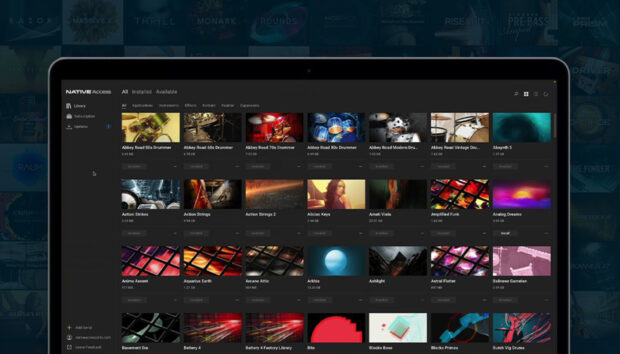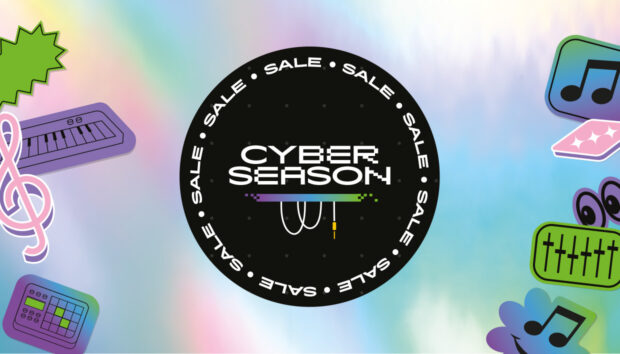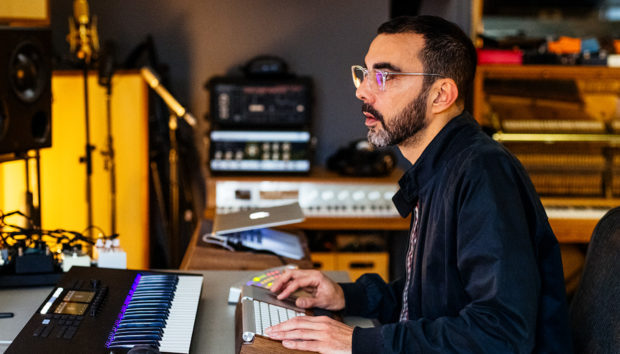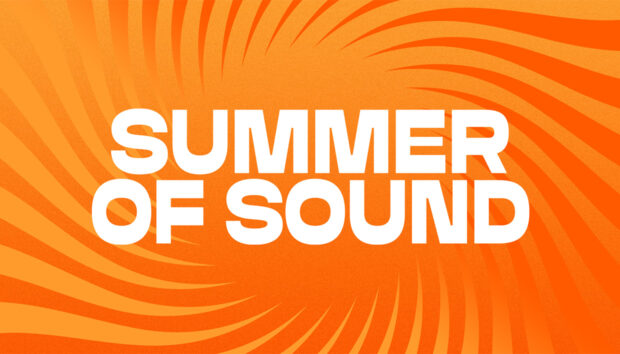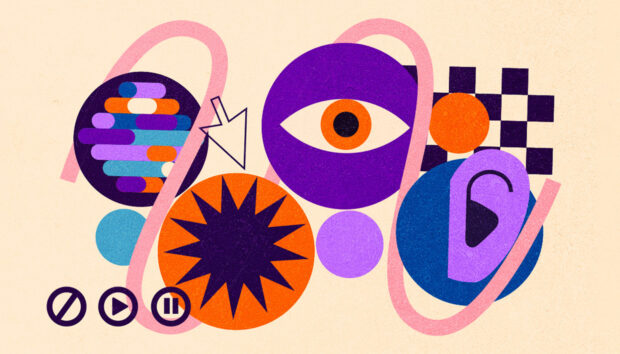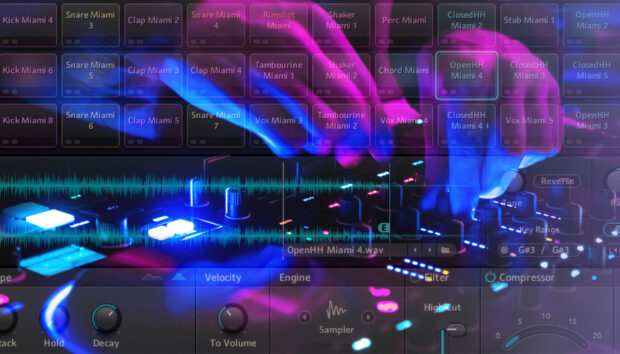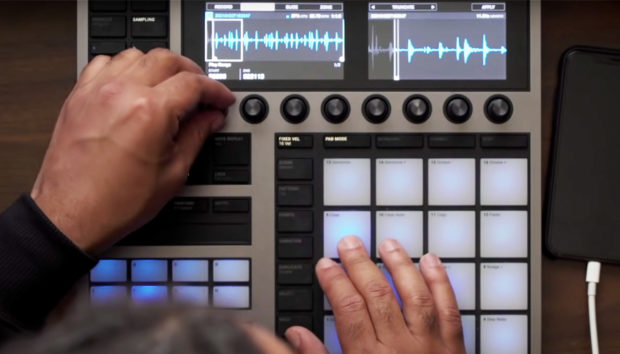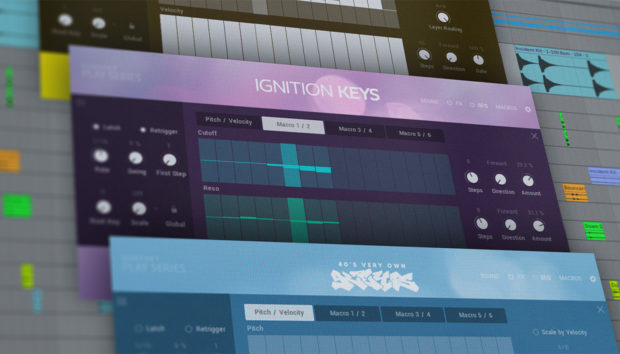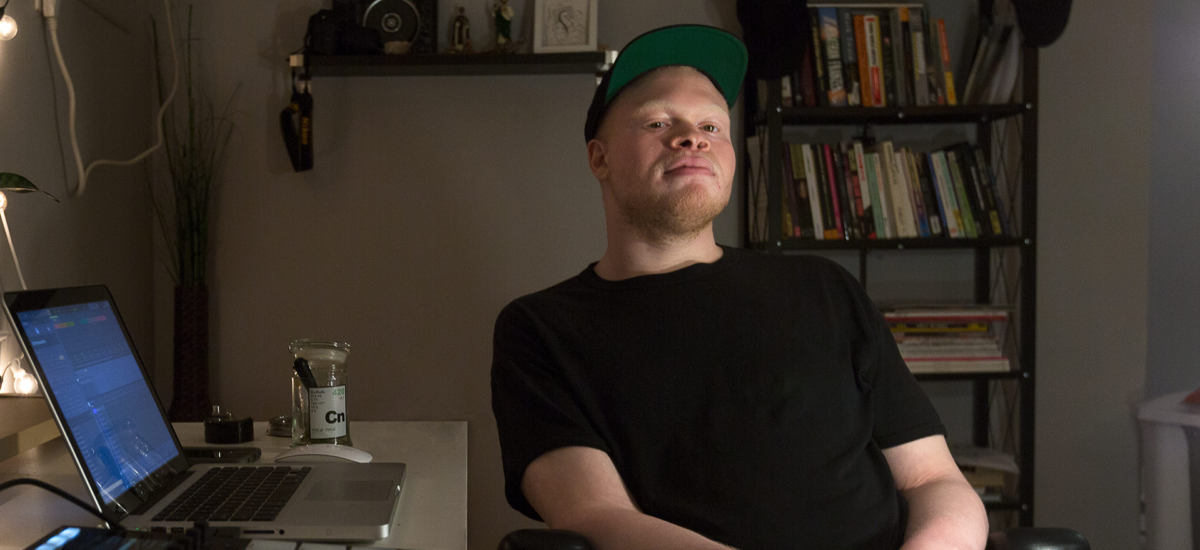
Growing up in New Orleans and then Atlanta, Leonce Nelson, known simply as Leonce, has experienced a rather quick rise to international acclaim. The 24 year-old producer infuses elements of trap, grime, house, and R&B with jittery, dark atmospheres, creating a sound that feels notably fresh and raw. After a flurry of Soundcloud releases, the young artist signed to the Fade To Mind label in 2016, and to-date has released three mixtapes and an EP, titled Insurgency.
Leonce is also a somewhat rare fixture in the underground club scene, particularly in the American South: a young, queer black man, who has been working to create safe and inclusive spaces for the LGBTQ and POC nightlife community. The Atlanta club night, Morph, which he started in February 2016 alongside collaborator Jay Levy (a.k.a. JSPORT), has become one of those safe spaces, where Leonce and his compatriots also get to flex creative muscles against both bigotry and by-the-numbers club music. He’s also spent much of the last year touring Europe and Asia, where he’s quickly amassed an adoring fanbase.
Native Instruments spoke to Leonce from his home in Atlanta about the culture, process, and work that goes into creating his unique brand of club music.
You use the term “weaponized resistance” to describe your method of DJing and producing. What’s your general disposition like? Do you think that’s reflected in the kind of music you make?
I would say I’m pretty chill most of the time, but if someone is unnecessarily rude to me I can get a little curt. I think my music can have both of those sides of my personality, more leaning toward the latter sometimes. Often if I’m upset at the world, or at something specific, writing music or DJing in a certain way is a way for me to express that productively.
Did you come to music production with a traditional musical background?
I didn’t have any professional background, or any training or anything like that. I just bought a laptop with what I earned from a summer job when I was a teenager; it was a new computer at the time, and it just made me want to explore and see the stuff I could do with it. I never studied melody or anything. I just developed a natural ear for the kinds of melodies I like. There’s a lot of guesswork with melodies. I just bought a music theory book this week [laughs] — I’ve been reading it and hopefully I’ll get something out of that.
Getting the Maschine got me into the style of not being so, I guess, deliberate — just jamming stuff and just going with it
How’d you first start making tunes?
I’ve been making music for about eight years now. I started out using Ableton Live. I had no gear or anything, just using the keyboard and mouse, and after about four or five years that was really getting old for me. I knew I needed something. I did my research on the MPC, Push, and all of that, but I eventually decided I wanted a Maschine. Ever since then, I got into just jamming my tracks out; having the Maschine, with all the sounds in one place, got me really used to just loading up a few random sounds and then making a track in less than an hour. A lot of the stuff on my EP is jams where I did each in like less than two hours. Getting the Maschine got me into the style of not being so, I guess, deliberate — just jamming stuff and just going with it.
How did you begin to excel at MASCHINE? Did you watch a lot of YouTube videos, or just learn by doing?
I got better with Maschine by recording tons of ideas with it when I first got it, but I also read the whole manual because I wanted to master it as quickly as possible. When you finally buy it and you start messing around on it, you want to know everything it can do so you can take advantage of that stuff…at least that’s how it was for me.
How did you approach producing the new Dawn Richard song, “Break Me”? How did you get the synth lines in that one?
Dawn and I were talking about doing some R&B tracks, but Bounce-influenced — when she mentioned it to me, it clicked pretty instantly. When I was doing some jam sessions on my Maschine and had some interesting ideas, I sent them over to her and she laid down her vocals. I used some of the Maschine chord sets to get the progression, and some basic filter and EQ processing stuff for the synth chords.
How do you think growing up in the South has influenced the kind of music you produce? Did you spend a lot of time going to clubs over the years?
I think growing up in the South has made me aware of how much talent there is down here, and aware of the fact that there’s still an underground in America. There are still spaces down here where we can have fun, that aren’t bound by the rules of whatever political shit is going on right now—but they’re dwindling down, unfortunately, due to gentrification being a worldwide issue. I did go to clubs when I was younger, and being able to experience that at a young age started to teach me a lot about what makes people dance, and what sounds I like to hear on a system.
What are your feelings about quantizing?
I don’t quantize much after I record. I have my Maschine set to auto-quantize during recording just a tiny bit, but I like to keep the feel as human as possible. Even if that means recording a few takes, I’d rather just get it right by hand.
Was DJing your entry point to production? How would you describe the relationship between the two?
In a way my producing feeds off of my DJing. When you DJ, people kinda expect that you do the other thing also. Especially because my music started me touring internationally, I’d come home and have different ideas just from traveling and playing for different crowds. That’s definitely influencing my second record.
What would you say have been your primary musical influences as an artist?
My main influences are definitely American black music, from all periods, 100%. We have given the world so much culture, and I’m proud of be a part of that. We’re as under-appreciated as we are appreciated.
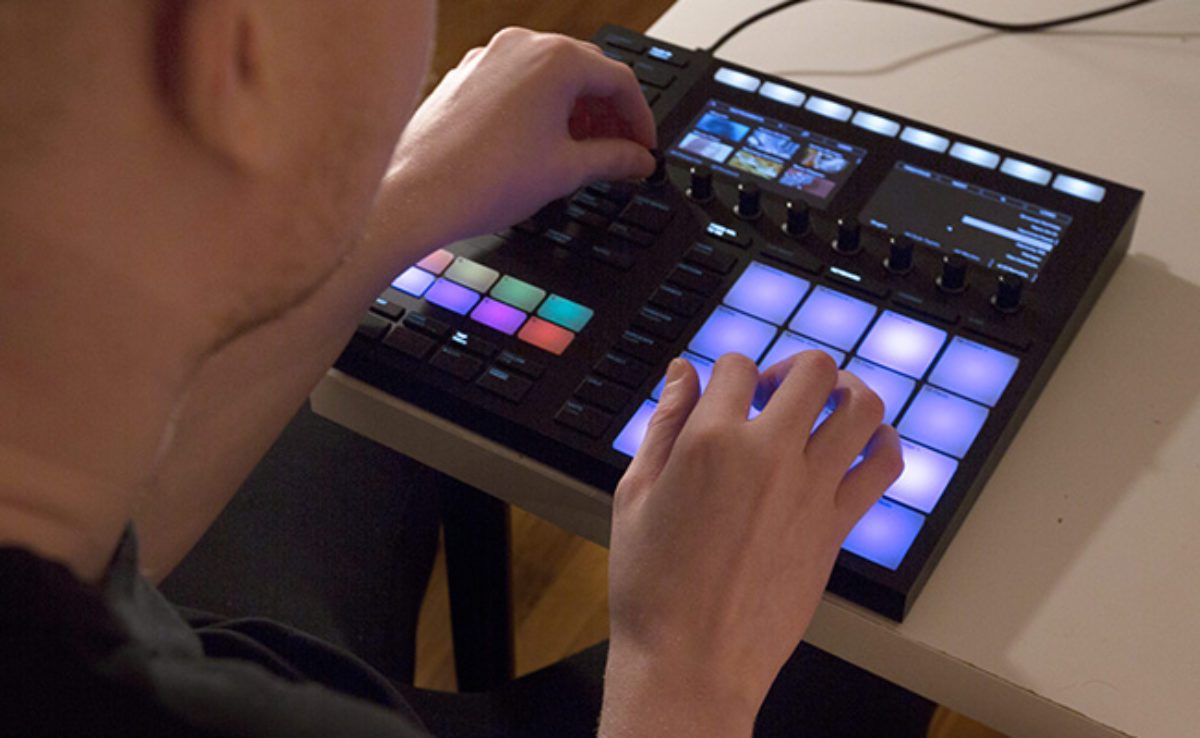
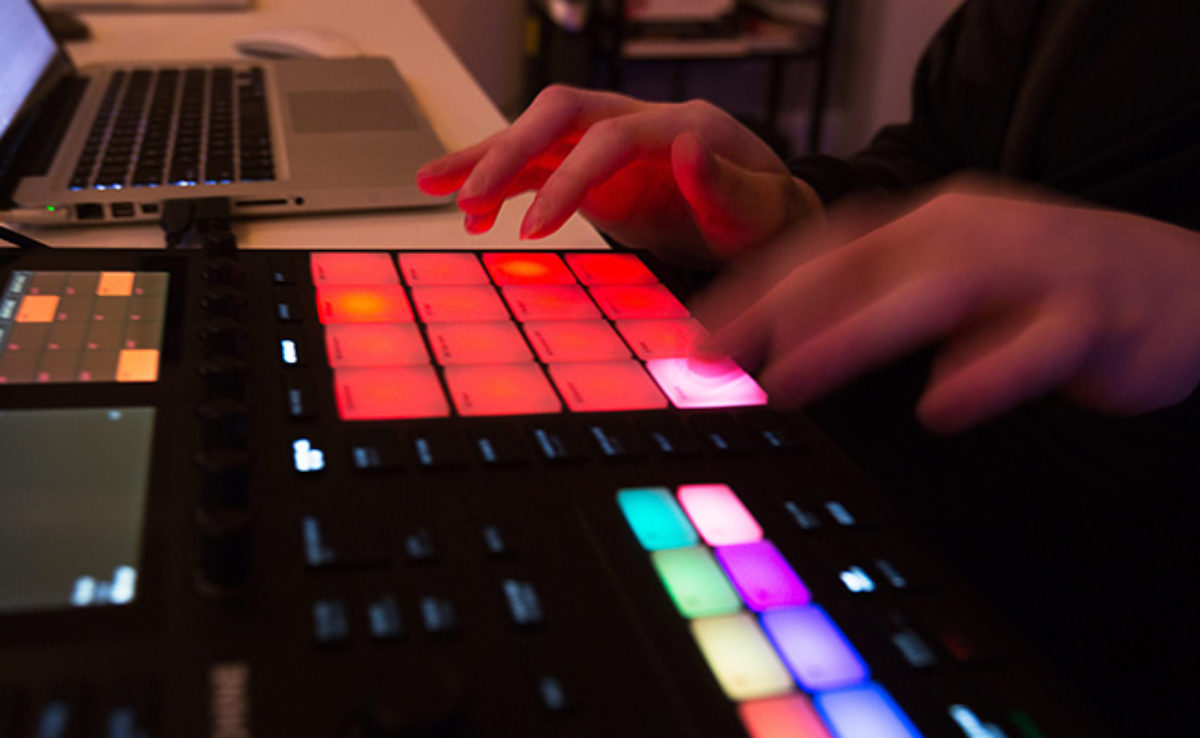
You seem to be touring the world quite a bit these days. What doors opened for you to make that happen?
I released a pretty quick succession of material from my label Fade to Mind, which I guess connected with people more than I expected it would. I’ve been fortunate enough to be touring international quite a bit this year — even more than I’ve toured in the US, to be honest.
Where would you say you have the strongest fanbase?
I would say maybe even in Europe. I have a lot of fans all over the world, honestly — I didn’t even know that until this year. When you just live in America and make music here for your whole life, it’s easy to forget that there’s a whole world out there that appreciates and gets excited about music.
Are you mainly working within with MASCHINE inside of Ableton as a plugin, or on its own?
I’m finding lately that I’m using Maschine as a standalone. I just record stuff, and then use the “bounce to audio” feature to just drag the clips out, and then bring those into Ableton later. I like to use it more as an instrument or a sketchpad, and then kinda do the more song-y, arrange-y, mixing stuff in Ableton.
Do you have go-to kits, or do you pick stuff at random?
It’s usually random. It can feel kinda daunting, referencing this huge library of stuff, but it’s also cool in a way — I like to always try something new, and so I always fall into that habit. With Maschine it makes me easy to do stuff like that and just experiment.
How do you usually start?
I like to just turn the metronome on, and really everything falls into place after that. It can be starting with drums or melodies, but I usually like to start with the melody because it gives you more of an emotion to go off of.
And how do you know when a track is finished? Is that usually a tough part of the process for you?
Knowing when a track is done can be tough for me sometimes, but if I trust my judgement and work hard on it, I can get to a place where I’m happy enough with it. Finishing my first few releases taught me a lot of things about the whole process, so I’m more confident about it now than I used to be.
Do you see big changes in your production methods in the future or do you plan to continue down the path you’ve been on?
I think this will definitely be the way I work for the foreseeable future. I’ve never really been a person that’s been wanting a whole bunch of gear; when I was shopping around for a controller, I got Maschine because it comes with so many sounds. It’s not something that’s not essential — for me it’s definitely essential. If I really want to make music, I have to have my Maschine. I’ve made music in studios where there’s a bunch of gear on the walls, but I’ve maybe used one thing, or maybe didn’t use anything.
What’s next for you?
I’d love to start performing live [at some point], to do it in a way that’s both exciting for me and for the people attending.
photo credits: Jesse Pratt Lopez








